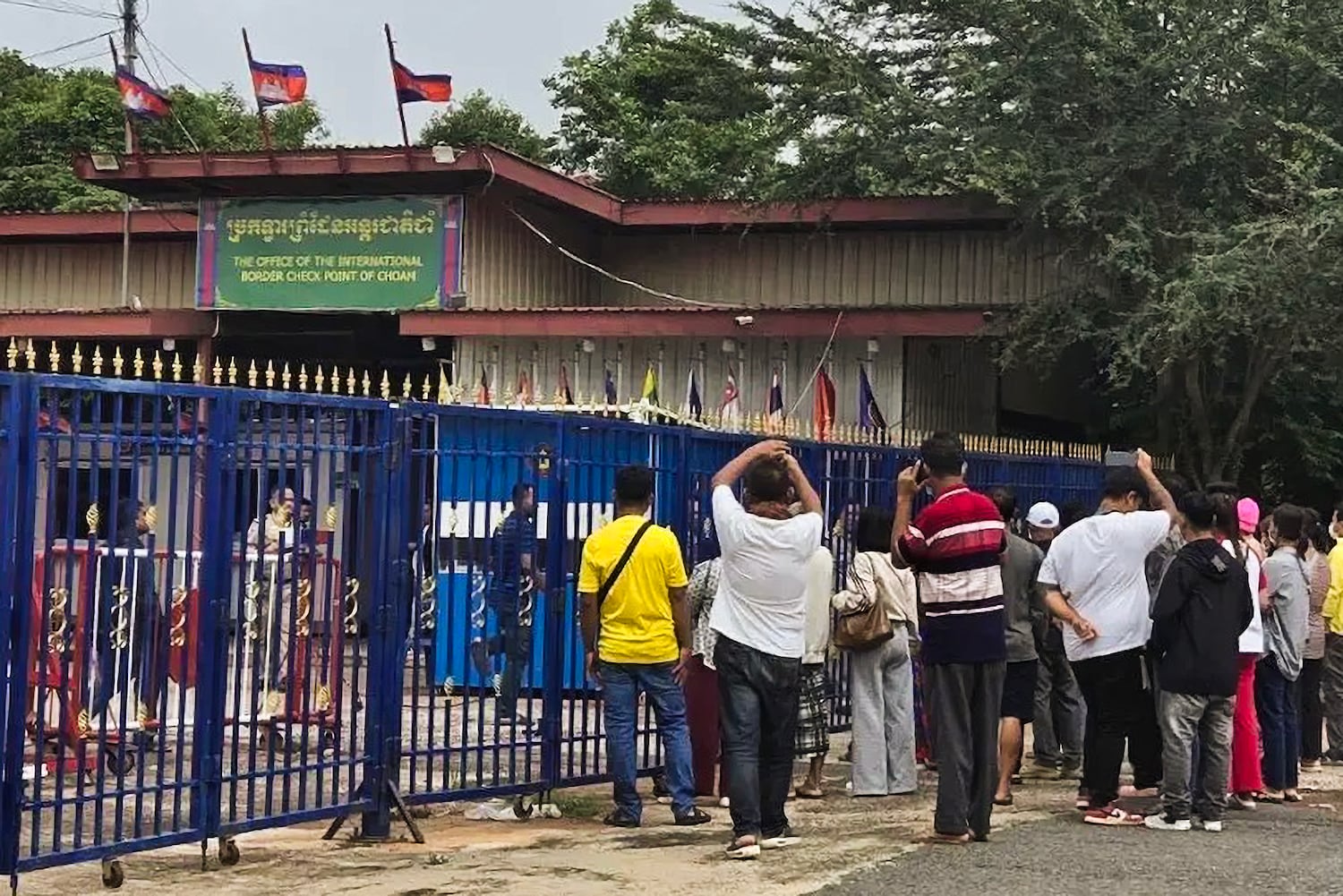Thailand closed its international land border crossing points with Cambodia on Monday as the cycle of retaliation from a territorial dispute between the Southeast Asian neighbors grew more intense.
Cambodia, meanwhile, said that as of midnight on Monday, it was suspending all fuel and gas imports from Thailand. It’s already boycotting Thai internet services and supplies of electricity. Cambodia imports about 30% of its gasoline and other fuel from Thailand.
Thai regional military commands ordered the closure of all seven international border crossings with Cambodia, blocking vehicles, foot traffic and trade – including fuel trucks. The only exceptions are for humanitarian cases, like medical emergencies, and for students.
The tit-for-tat follows a May 28 firefight where Thai forces shot dead a Cambodian soldier on a sliver of disputed territory. The crisis in relations was compounded last week when Cambodia leaked a private phone conversation between Thai Prime Minister Paetongtarn Shinawatra and former Cambodian leader Hun Sen. The call was meant to help calm the tensions but ended up making it worse.
In that call, Paetongtarn urged Hun Sen not to listen to an outspoken Thai general who oversees the army in the border area. The revelation put domestic political pressure on the Thai premier that threatens the stability of her coalition government. Thailand nation’s upper house of parliament has also called for a judicial inquiry into her conduct.
On Monday, Paetongtarn went on the diplomatic offensive, saying Thailand needed to take steps to curb the threat from scam centers inside Cambodia. After chairing a meeting of Thai officials on cross-border crime, she described Cambodia as “a hub of world-class criminality and a national threat” and announced that Thailand will intensify controls at seven border provinces with Cambodia and cut internet services to Cambodian military and security agencies.
Cambodia has already bristled at Thailand shortening the opening hours at border crossings. A week ago, it banned imports of all Thai vegetables and fruits, and last Friday, Hun Sen urged the government to consider suspending the import of all canned goods from Thailand, including alcoholic beverages, energy drinks, and canned fish.
The two countries have close commercial ties. According to Thai government data cited by Reuters, they had $10.4 billion dollars in two-way trade last year, dominated by precious stones, jewelry and fuels. Additionally, hundreds of thousands of Cambodian migrants work in Thailand.

On Monday, Cambodian Prime Minister Hun Manet said that Cambodia had decided to import additional petroleum from Singapore to meet domestic demand after cutting supplies from Thailand.
In addition to economic means to counter Thailand, he affirmed Cambodia’s military readiness, including the preparation of missiles to shoot down aircraft and heavy weaponry to destroy tanks.
“We are now sitting and considering … for every Thai warplane or drone our troops shoot down, how much encouragement or reward should we give them? That’s what we are currently thinking about,” Hun Manet said.
Thailand and Cambodia have a history of bickering over their 800-kilometer (500-mile) border, which has escalated to armed clashes in the past. Cambodia is requesting the International Court of Justice rule on the demarcation of four areas, including the scene of the May 28 firefight. Thailand, however, says it does not recognize the compulsory jurisdiction of that court.
Edited by Mat Pennington.
This content originally appeared on Radio Free Asia and was authored by Pimuk Rakkanam and RFA Khmer.